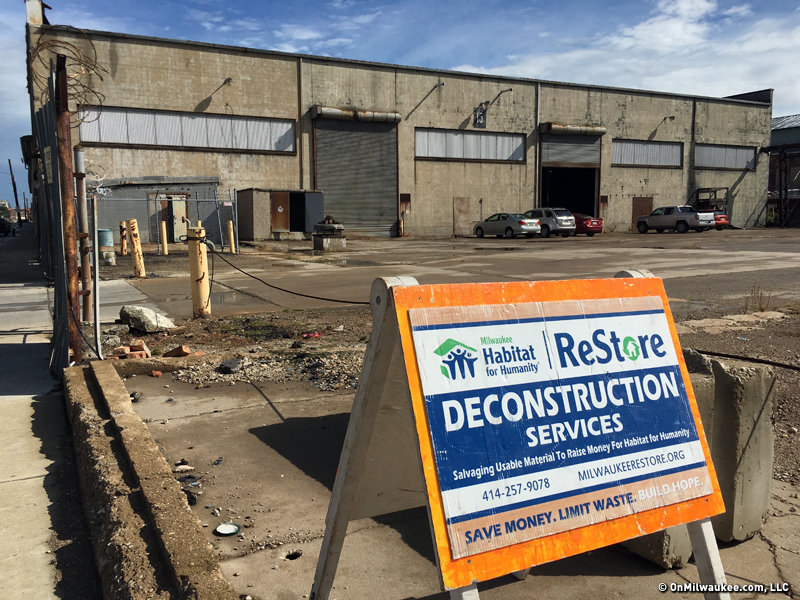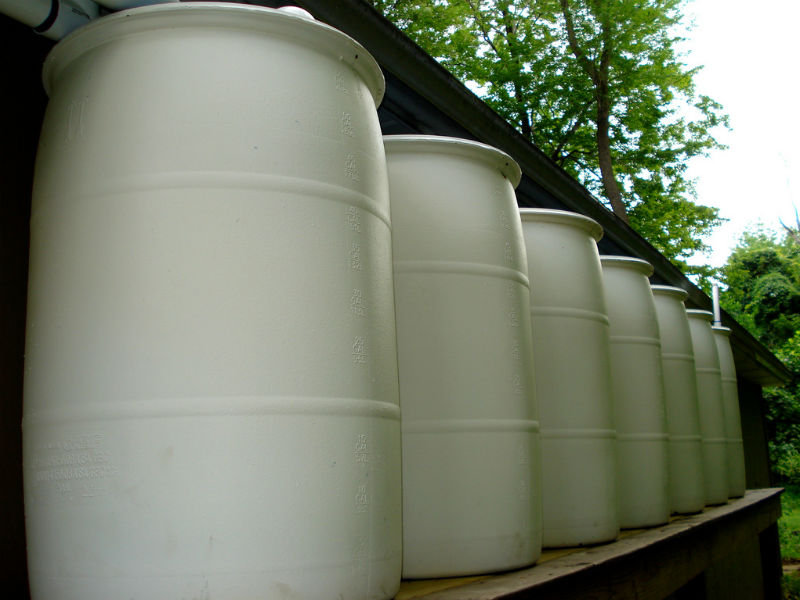If things look a little greener around here this April, there's a good reason. Our editorial staff is busy expanding the ideals of Earth Day into a month-long celebration of energy conservation, alternative transportation, recycling tips and about a million ways you can be a better friend to the planet. Welcome to Green Month, Milwaukee.
While pundits, politicians, scholars, scientists, celebrities and average citizens debate the existence of global warming, a different debate -- one that sparked heated discussion over the past two decades -- has been dormant.
Is recycling worthwhile?
Type the words "global warming" into Google's search engine and you get 41 million hits. Type in "recycling" and you get 56 million hits.
For years, municipalities have been hammering the motto, "Reduce, Reuse, and Recycle." Millions of Americans spend time separating glass, aluminum and paper refuse in recycling receptacles. Some are more fervent than others, but recycling has become a reflex for people in all economic spheres.
But, is it worth it?
Much like the global warming debate, opinions vary and both sides are passionate. Former Vice President Al Gore, who won an Academy Award for his global warming documentary "An Inconvenient Truth," has claimed that Americans are "running out of ways to dispose of waste in a manner that keeps it out of either sight or mind."
Skeptics scoff at that statement. They think that recycling actually harms the environment and uses more resources than landfills.
John Tierney, a columnist for the New York Times, wrote an op-ed piece in 1996 entitled "Recycling is Garbage." The piece, which detailed several arguments against recycling, generated more angry responses than any piece in the history of the newspaper.
Tierney's primary point was that mandatory recycling programs aren't good for posterity. "They offer mainly short-term benefits to a few groups--politicians, public relations consultants, environmental organizations, waste-handling corporations--while diverting money from genuine social and environmental problems," Tierney wrote. "Recycling may be the most wasteful activity in modern America: a waste of time and money, a waste of human and natural resources."
The crux of the arguments by recycling critics -- dubbed "anti-recyclers" by advocates -- is that mandated recycling programs are inefficient. Recyclers say that the anti-recyclers are in the pocket of industries harmed by the process.
Anti-recyclers claim that gains derived from curbside pickup are offset by the need for more trucks, which consume more gas and create more atmospheric pollution. They feel that recycling advocates, aided by the media, created a number of myths about recycling.
In a 2003 article posted on the Web site ecoworld.com, Daniel K. Benjamin of the Political Economy Research Center addresses eight things he perceives to be myths. Several of his arguments are based on economics. He feels that human innovation has increased the amount of resources available, while the market determines the price.
Benjamin rejects the notion that all recycling efforts protect the environment.
"Recycling is a manufacturing process with environmental impacts," he writes. "Viewed across a wide spectrum of goods, recycling sometimes cuts pollution, but not always. The EPA has examined both virgin paper processing and recycled paper processing for toxic substances and found that toxins often are more prevalent in the recycling process."
Benjamin also refutes the notion that recycling saves resources -- "Using less of one resource generally means using more of other resources," he writes -- and that recycling would not exist if not for government mandates.
"Scavenging may, in fact, be the oldest profession," Benjamin writes. "Long before state or local governments had even contemplated the word recycling, makers of steel, aluminum and many other products were recycling manufacturing scraps, and some were even operating post-consumer drop-off centers."
In a 1996 response to Tierney's essay, authors Richard A. Denison and John F. Ruston summed up the case for recycling:
"Compared to using materials once, then throwing them away and having to replace them, recycling saves energy, dramatically reduces pollution from manufacturing and avoids the destruction of natural resources that occurs when extracting virgin materials," they wrote. "At the current national rate of about 26 percent, recycling saves enough energy to supply the needs of 9 million U.S. households. And recycling paper cuts down on air and water pollution while reducing pressure to cut down our remaining forests and convert them into monotonous tree farms.
"The greatest economic benefit of recycling is that it provides a base of materials for robust, efficient manufacturing industries. So far this decade, U.S. paper manufacturers have voluntarily built more than 45 recycling-based pulp and paper mills and only a handful that use virgin wood. This is not just because recycling plants are better for the environment, but because they are a less expensive way to increase production, taking advantage of the increasing supplies of used paper collected in business and community recycling programs."
Host of “The Drew Olson Show,” which airs 1-3 p.m. weekdays on The Big 902. Sidekick on “The Mike Heller Show,” airing weekdays on The Big 920 and a statewide network including stations in Madison, Appleton and Wausau. Co-author of Bill Schroeder’s “If These Walls Could Talk: Milwaukee Brewers” on Triumph Books. Co-host of “Big 12 Sports Saturday,” which airs Saturdays during football season on WISN-12. Former senior editor at OnMilwaukee.com. Former reporter at the Milwaukee Journal Sentinel.







